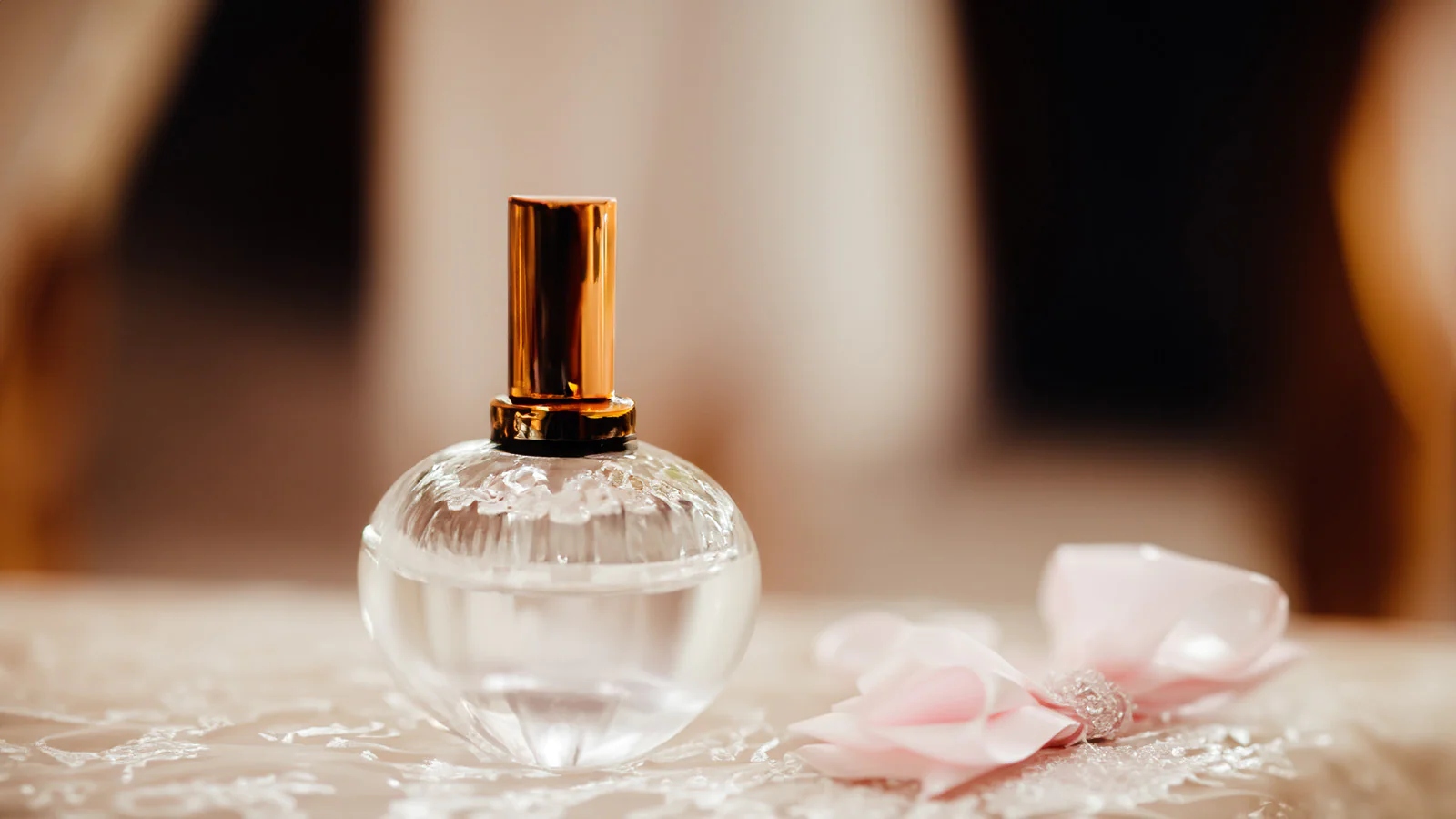Perfume Choosing Guide - How To Find Your Perfect Match?
Discover how to choose the perfect perfume with this comprehensive perfume choosing guide. Find your signature scent today!
Author:Katharine TateReviewer:Karan EmeryFeb 23, 20249K Shares146.4K Views

Choosing the perfect perfume can be a daunting task, as it involves finding a scent that not only complements your personality but also enhances your overall presence. With countless fragrances available on the market, each with its own unique blend of notes and accords, navigating the world of perfumery can seem overwhelming. But, this perfume choosing guideis here to help you.
However, with a basic understanding of fragrance families, notes, and personal preferences, selecting the ideal perfume can become an enjoyable and rewarding experience. In this comprehensive perfume choosing guide, we will explore the essential factors to consider when choosing a perfume, from understanding fragrance classifications to practical tips for finding your signature scent.
Understanding Fragrance Families
Perfumes are categorized into different fragrance familiesbased on their predominant scent characteristics. Understanding these fragrance families can help narrow down your options and guide your selection process. The main fragrance families include floral, oriental, woody, fresh, and citrus.
Identifying Personal Preferences
Before diving into the world of perfumes, take some time to identify your personal fragrance preferences. Consider the scents you are naturally drawn to, whether it's floral and feminine, spicy and exotic, or fresh and clean. Understanding your preferences will help you narrow down your options and focus on fragrances that resonate with your taste.
Exploring Fragrance Notes
Every cologne or perfume has a unique set of "notes." The overall aroma is determined by these notes. The base, top, or head, and middle or heart notes are the three layers that make up these notes, and they all combine to produce a particular scent. Certain perfumes, such as those that feature notes of rose, gardenia, or geranium, are classified as flowery.
Some might taste a little more fruity, with hints of apple or citrus. Spicy notes such as cinnamon or star anise can be found in exotic perfumes. Men's fragrances can come in different notes. While certain perfumes may feature elements of pine or even leather, musky scents tend to be thicker and more manly.
Before making a purchase, it is always a good idea to decide which sorts of cologne or perfume you love, and then find out which base notes they contain. You can have a better sense of which notes you believe will suit your tastes by learning more about the various notes used to produce perfume and cologne.
Sampling Fragrances
Sampling fragrances is essential to finding your perfect perfume. Visit perfume counters or specialty stores that offer a wide selection of fragrances and take your time exploring different options. Test perfumes on your skin rather than relying solely on scent strips, as fragrances can smell different on each individual due to body chemistry.
Testing Perfumes Properly
When testing perfumes, it's important to apply them correctly to ensure an accurate representation of the scent. Spray the perfume on your wrist or inner elbow, allowing it to interact with your skin chemistry. Avoid rubbing the perfume into your skin, as this can alter the fragrance composition and affect its longevity.
Always Test On Skin
Before you start, be sure to test out a ton of samples! Although you can now definitely spritz the fragrance on test strips, you really should use it on your own body first before deciding. Finding a perfume that suits your body chemistry and your preferences is essential when choosing a scent. Your distinct pheromones allow the perfume's aroma to adapt to your preferences. This can vary significantly from the test strips.
Considering Occasion And Season
Different fragrances are suited for different occasions and seasons. Light, fresh scents are ideal for daytime and warmer months, while richer, more intense fragrances are better suited for evening wear and cooler weather. Consider the occasion and season when selecting a perfume to ensure it complements the environment and atmosphere.
Testing Perfume Wear Time
Perfumes evolve over time as the fragrance notes unfold on the skin. To assess how a perfume wears throughout the day, apply it in the morning and observe how it develops over several hours. Pay attention to how the scent evolves and whether it maintains its intensity and longevity.
Seeking Recommendations
Don't hesitate to seek recommendations from friends, family, or fragrance experts when choosing a perfume. They can offer valuable insights and suggestions based on their own experiences and preferences, helping you discover new fragrances you may not have considered otherwise.
Considering Fragrance Concentration
There are four concentration levels for fragrances. The price typically increases in tandem with the concentration. High concentration colognes and fragrances usually smell stronger and stay longer. They can be somewhat expensive, but for some, the added cost is totally justified.
We refer to the maximum concentration as parfum, or simply perfume. If you apply this level to your wrists or pulse points simply once, it usually lasts the entire day. Eau de parfum is the next lowest level and usually lasts for six hours after application.
Eau de toilette, which is located on the third level and is typically easily accessible and reasonably priced in retail establishments. To have it last the entire day, many applications are usually necessary. With a two-hour duration, eau de cologne is the fourth and lowest fragrance concentration.
Trusting Your Instincts
Ultimately, choosing a perfume is a personal and subjective process. Trust your instincts and select a fragrance that resonates with you on an emotional level. If a perfume makes you feel confident, beautiful, and empowered, it's likely the perfect choice for you.
Perfume Choosing Guide - FAQs
What Are The Main Factors To Consider When Choosing A Perfume?
The main factors to consider when choosing a perfume include fragrance families, personal preferences, fragrance notes, occasion and season, fragrance concentration, and perfume wear time.
How Do I Test Perfumes Properly?
To test perfumes properly, apply them to your skin (wrist or inner elbow) without rubbing, observe how the scent evolves over time, and assess its intensity and longevity throughout the day.
How Can I Find My Signature Scent?
To find your signature scent, explore different perfumes, sample fragrances on your skin, consider your personal preferences and lifestyle, seek recommendations from others, and trust your instincts when selecting a perfume.
How Do I Choose The Right Perfume For Me?
- Locate Your Ideal Family.
- Everything Relies on the Notes.
- Select Your Area of Focus.
- Always do skin tests.
- Examine Samples.
- Do Some Research.
What Should Be Considered While Selecting Perfume?
It's important to think about how a fragrance will change on your skin because perfumes have a special way of interacting with your body chemistry. The way a perfume smells on you can be affected by elements including your skin type, pH level (acid or basic), melanin or water content (skin pigmentation), and natural body odor.
How Do People Choose Perfume?
A scent may be purchased by some people because of its well-designed bottle, by others because of its brand, or by someone else entirely based on advertising.
What's The Best Way To Sample Perfumes?
The best way to sample perfumes is to visit perfume counters or specialty stores, test fragrances on your skin rather than relying on scent strips, and take your time exploring different options to find the perfect scent.
What To Look For When Buying A Perfume?
- Notes -All perfumes are individually created notes.
- Longevity - Finding the ideal fragrance won't matter if it doesn't stay on your skin or lift your spirits.
- Mood -Your mood may be greatly impacted by the scent you wear, and vice versa.
Conclusion
Selecting the perfect perfume involves a combination of understanding fragrance families, exploring fragrance notes, testing perfumes properly, and considering personal preferences. By following this comprehensive perfume choosing guide and trusting your instincts, you can find a signature scent that reflects your unique personality and style, enhancing your overall presence and leaving a lasting impression.
Jump to
Understanding Fragrance Families
Identifying Personal Preferences
Exploring Fragrance Notes
Sampling Fragrances
Testing Perfumes Properly
Always Test On Skin
Considering Occasion And Season
Testing Perfume Wear Time
Seeking Recommendations
Considering Fragrance Concentration
Trusting Your Instincts
Perfume Choosing Guide - FAQs
Conclusion

Katharine Tate
Author

Karan Emery
Reviewer
Latest Articles
Popular Articles

